
The Economist magazine published an article almost thirty years ago, discussing the prospect of a world currency that should be expected around the year 2018. The 1988 article foreshadows a methodical movement towards a centralized world currency that we have, in many ways, seen play out over the past few decades.

One must also keep in mind that the controlling interest of The Economist is held by the powerful Rothschild family, who regard themselves as the “custodians of The Economist magazine’s legacy.” In essence, the magazine operates as a quasi-propaganda arm for the Rothschild banking empire and related businesses and, is in many ways, meant to prime the pump of public opinion for the globalist agenda to be implemented.
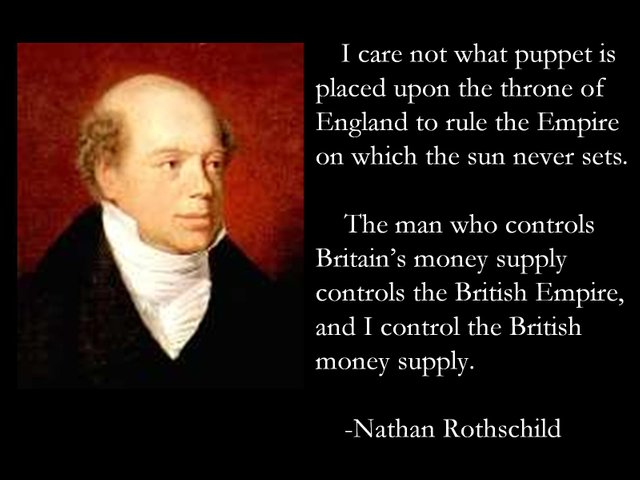
The excerpt below appeared in the print magazine on January 9, 1988, in Vol. 306, pp 9-10.
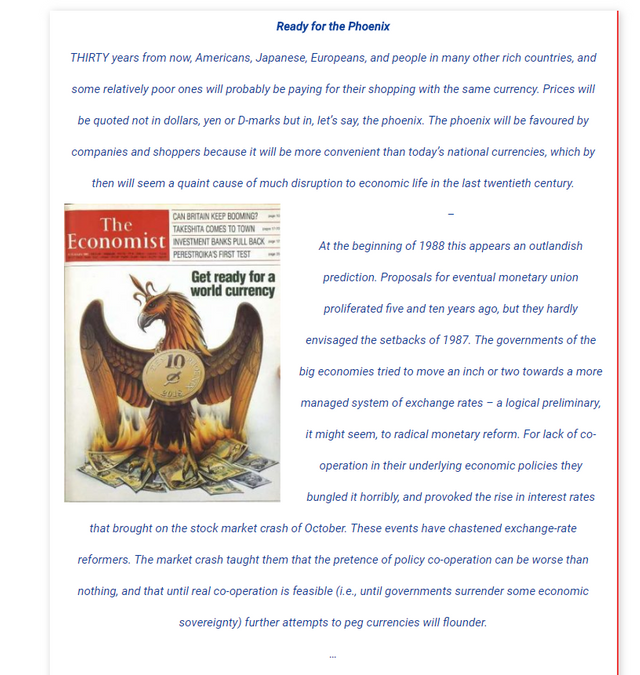
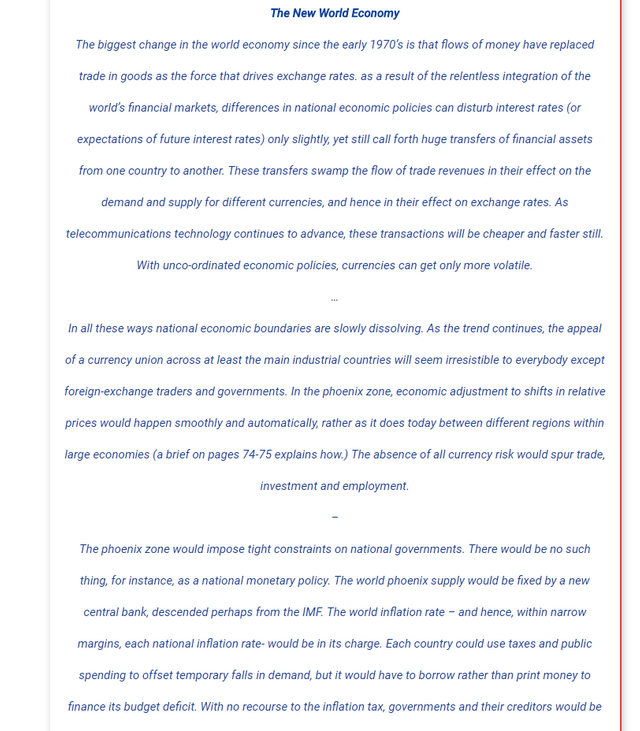
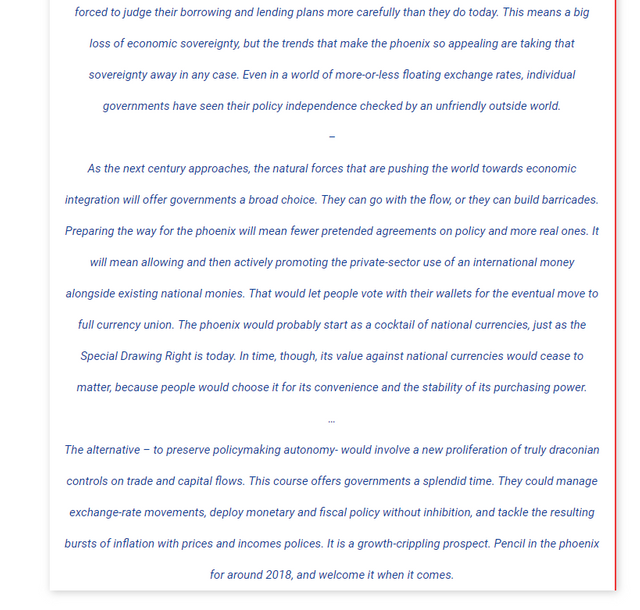
Only ten years later, in 1998, The Economist was once again engaging the public in an effort to forward the globalist agenda, with an article entitled “One world, one money.”
Very much in line with the 1988 piece, the publication attempts to explain why a much more centralized and controlled system would be beneficial to the global economy, while wholly ignoring the fact that such a centralized global currency would be a massive coup for the international banking cartel, and the Rothschild banking empire’s financial bottom line.
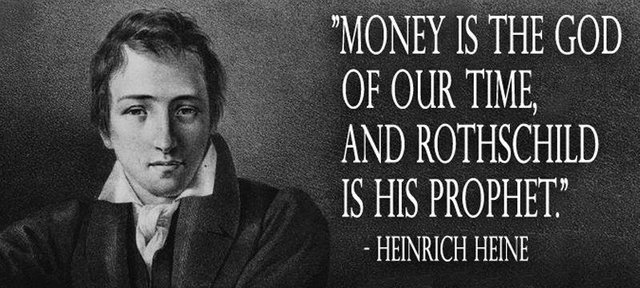
Additionally, it must be noted that the creation of a global currency would give an inordinate amount of geopolitical capital to unelected international bankers, and subsequently take power away from the citizens of each nation and their respective governmental representatives.
Does anyone really want international bankers to have such a vast amount of political power on top of the massive financial influence and sway they already hold in the halls of power? People want more say in their own lives, not having policy dictated to them by international banksters and bureaucrats.
Control over a nation’s money supply is, for all intents and purposes, the lifeblood of a state’s sovereignty – without this independence, the state only exists in name but is subservient to supranational powers whose interests lie outside of domestic and national political/economic concerns.
“Give me control of a nation’s money supply, and I care not who makes its laws,”
said Mayer Amschel Rothschild, founder of the Rothschild banking dynasty.
Although the Rothschild family now generally keep a very low public profile, they still have significant business operations across a wide spectrum of sectors. While you may not find any one particular Rothschild on the Forbes’ most rich list, the family is estimated to control $1 trillion dollars in assets across the globe, thus having a strong voice across the geopolitical spectrum that many perceive as a hidden hand manipulating events silently from behind a veil of secrecy and silence.
Are you starting to get the picture?
If so, please share this important information about the push for a one world currency and the agenda driving it!
This article has been shared under creative commons licence 3.0 and with attribution to http://thefreethoughtproject.com/rothschild-currency-world-2018/
Very interesting, but I am wondering if control can be achieved since the idea of cryptocurrencies is a decentralized monetary system.
Downvoting a post can decrease pending rewards and make it less visible. Common reasons:
Submit
Hi! I am a robot. I just upvoted you! I found similar content that readers might be interested in:
https://steemit.com/news/@zen12/rothschild-controlled-media-outlet-get-ready-for-a-world-currency-by-2018
Downvoting a post can decrease pending rewards and make it less visible. Common reasons:
Submit
Great article, thanks for sharing
Downvoting a post can decrease pending rewards and make it less visible. Common reasons:
Submit
Thanks for appreciating.
Downvoting a post can decrease pending rewards and make it less visible. Common reasons:
Submit